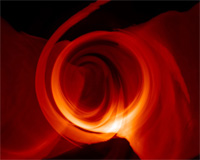The Steward Theory Fellowships

Steward Observatory at the University of Arizona invites applications for the Steward Observatory Prize Fellowships described below. These fellowship positions share an application deadline of 11/30/2023. Complete applications submitted by the deadline will be considered for multiple Steward Observatory Fellowship positions.
Steward Observatory Prize Fellowship in Theoretical and Computational Astrophysics
The Theoretical and Computational Astrophysics Fellow will lead a high-profile, independent research program in any area of theoretical and/or computational astrophysics as well as collaborate with colleagues in Steward Observatory and the Department of Astronomy. The Department supports a wide range of theoretical research programs, in topics such as gravity and relativistic astrophysics, cosmology, compact objects, galactic dynamics, astrophysical fluid dynamics, galaxy formation, star formation, stellar and binary evolution and explosions, and planet formation.
Steward Observatory Prize Fellowship in Cosmological Data Analysis
Cosmological Data Analysis Fellows are expected to lead a high-profile, independent research program in any area related to data analysis of ongoing and future cosmological surveys, in particular DES, DESI, SPHEREx, Rubin Observatory’s LSST, the Roman Space Telescope, and CMB-S4. Applicants should outline their research plans to optimally extract cosmological information using one or multiple of these datasets. Expertise in modeling cosmological observables through analytical methods or numerical simulations, machine learning, statistical inference, and data reduction is beneficial. As members of the Arizona Cosmology Lab, fellows will be provided with priority access to UArizona and national supercomputing resources, close mentorship by experienced faculty, and opportunities to co-advise graduate students and mentor undergraduates.
All Steward Observatory Prize Fellows will have access to the extensive observational and computational facilities of the Department of Astronomy/Steward Observatory, including the 10-meter Submillimeter Telescope on Mt. Graham, the 12-meter ALMA Prototype Antenna on Kitt Peak, the 2×8.4m Large Binocular Telescope, the 6.5m MMT, and the 6.5m Baade and Clay Telescopes. In addition, the new University-wide Research Data Center provides access to high-end, local supercomputing resources (up to ~ 380 TFLOPS) including distributed, shared-memory, and GPU architectures. In addition to joining a stimulating research environment with an active program of seminars, conferences, and visitors, fellows are also encouraged to participate in the interdisciplinary Theoretical Astrophysics Program (TAP) that includes members of both the Lunar and Planetary Laboratory and the Physics Department.
UArizona offers a world-class research environment in astrophysics with strong collaborations between the Departments of Astronomy, Physics, Planetary Sciences, the UArizona Data Science Institute, the Arizona Space Institute, and NSF’s NOIRLab. Candidates are expected to support an equitable and diverse scholarly environment in research, mentoring, and service.
For more information and 2-step application process, visit UArizona Talent. Applicants will be considered for all Steward Observatory Prize Fellowships.
Xiangcheng Ma 2021-2022
Pierre Christian 2018-2020
Myoungwon Jeon 2015-2018, Assistant Professor, Kyung Hee University, Korea
Min-Kai Lin 2015-2017, Assistant Research Fellow at the Academia Sinica Institute of Astronomy and Astrophysics(ASIAA), National Taiwan University (NTU)

For Public
Public events include our Monday Night Lecture Series, world-reknowned Astronomy Camp and Mt Lemmon Sky Center.

For Students
A good place to start if you want to become an undergrad major or grad student, or need to find our schedule of classes.

For Scientists
Find telescopes and instruments, telescope time applications, staff and mountain contacts, and faculty and staff scientific interests.




